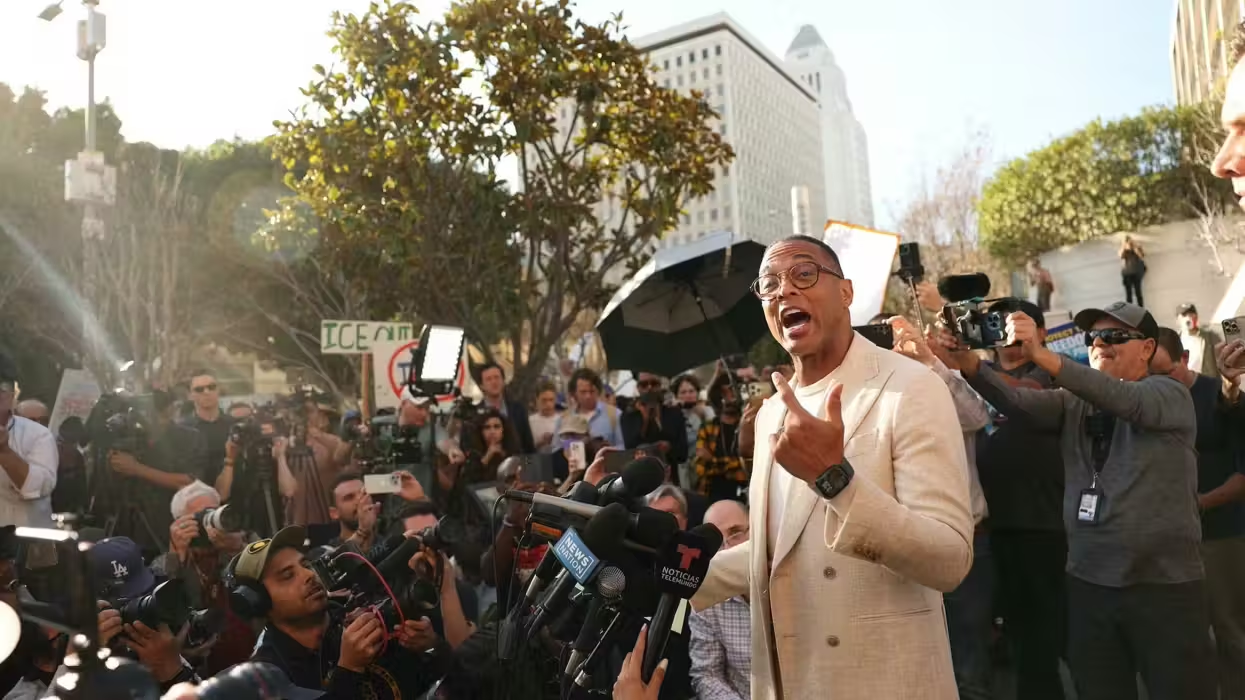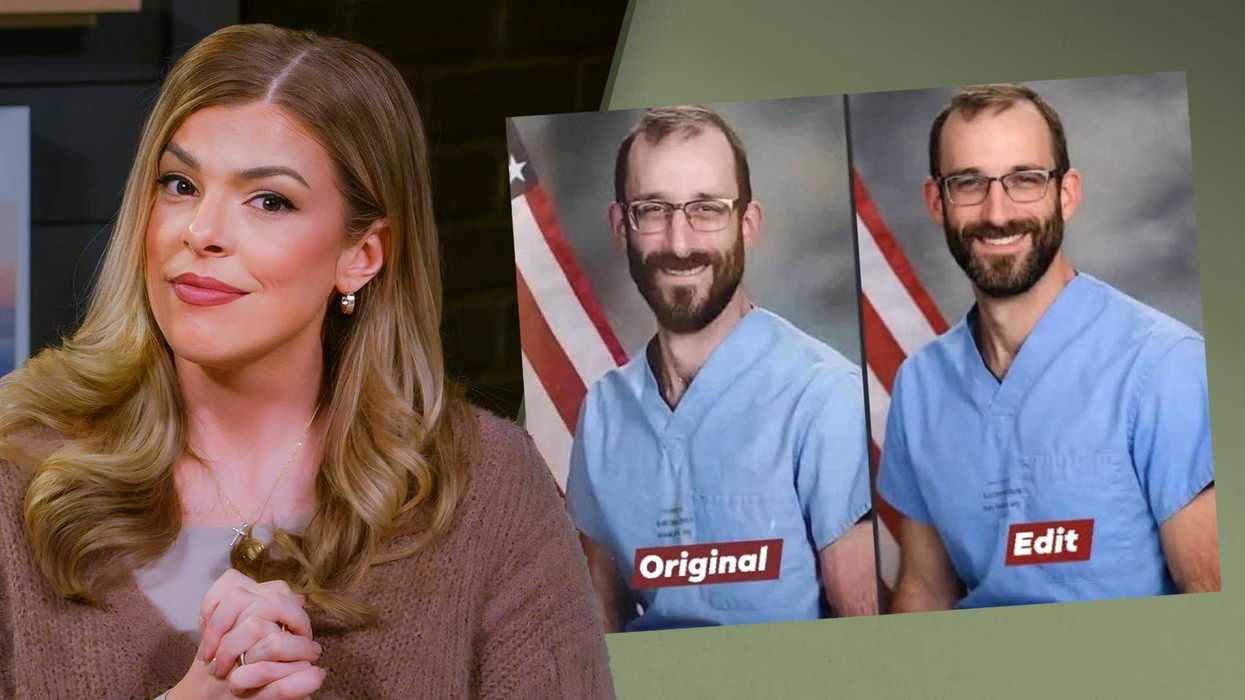
© 2026 Blaze Media LLC. All rights reserved.
HURRICANE SANDY: WHAT THEY ARE NOT TELLING YOU.
As Hurricane Sandy slammed the East Coast, the media, Facebook, Twitter and Instagram buzzed with stories of tragedy and loss. Undoubtedly, the loss has been and will continue to be tremendous. Millions are still without power, homes and businesses have been destroyed and many have even lost their lives. It grieves me to see the loss and the pain. It brings back vivid memories of the suffering I experienced first hand following Katrina and the earthquake in Haiti. I’ve been doing international disaster medicine for 30 years.
What you are not seeing is glaringly absent. We no longer celebrate heroes: ordinary folks like us that dig in, overcome horrific obstacles and make a tremendous difference. There is a reason that their story is absent.
DISASTERS DELIVER COMFORT
Serving as the Director of the Medical Triage Unit at the New Orleans Convention Center following Hurricane Katrina opened my eyes to discover what it takes to persevere under pressure. I was there as part of the Medical Teams International First Response Team. Within hours of our arrival in Louisiana, we were deployed to the Convention Center to set up the only functioning medical facility in the entire City of New Orleans. The question that changed it all for me was not why there were so many victims. I expected to see victims. What really challenged me was this: “Why do some people NOT become victims?” Frankly, what I discovered made me uncomfortable. It challenged me to redefine my purpose, to reignite my passion and to become more resilient.
Our society has become infatuated with victims. When disaster strikes we are irresistibly drawn to the television. Staring, we comfort ourselves, “At least my life isn’t that bad!” Inch by inch, over the past couple of decades, our society has strayed from the challenge of the hero in favor of the comfortable, numbing somnolence induced by focusing on the victim. A media that knows exactly what we want has seduced us to avoid challenge and seek comfort. This change of focus reminds me of the student I spoke to recently. When I asked him how he was doing in school and he replied, “Not bad. I’m not getting any F’s!” I couldn’t keep my mouth shut, “Really? Not getting any F’s? Buddy, you are facing the wrong direction!” Similarly, our society has chosen comfort and turned our backs on challenge. It is time to refocus. Our Country needs us.
Our families, our corporations and our Nation have paid a tremendous cost. As we disengage and choose comfort over challenge, our society suffers tremendously. It has blunted our competitive edge in the world. It is time for us to wake up, shake off the fog and embrace the calling of the Hero. It is time to get uncomfortable.
MINDSET EMPOWERS AND MOTIVATES…OR NOT.
Two primary axes define people when they are under pressure: Power and Purpose.
POWER
In 1954 Julian Rotter, from the University of Connecticut, described the concept of “Locus of Control." Victims believe that they are powerless; all power exists external to them. Things happen “TO” Victims. In their own eyes, they are completely at the mercy of someone else, someone with power. Following Katrina, I saw a large woman who stood holding her daughter’s hand as she shouted at the CNN reporter: “When is George Bush going to bring ME some food!?!?” Clearly, she believed that she didn’t have any power and so she looked to President Bush to bring her food. Sadly, this External Locus of Control causes people to disengage and avoid responsibility. In the workplace, they become a drain on resources and productivity. Powerless people can bring a family to their knees.
PURPOSE
What strikes me most about the Katrina woman, however, is that she didn’t ask Mr. Bush to bring her daughter some food. Completely unaware of the needs surrounding them, Victims look out for only themselves. They ask, “If I don’t look out for number one, who will?” Their own needs consume them as they fight to get what ever they can. The survival and pleasure of self drives them and becomes their defining purpose. They do not believe, comprehend or see the Economy of Giving.
THE FOUR RESPONSES TO PRESSURE
VICTIM
Victims are Powerless Takers. Clueless that they even have a choice, they cannot see the way out. Waiting for others to take care of them, they remain paralyzed. Some of them might not even be interested in change because it is too much work. For others, it goes much deeper. Not only is power external to them but so is responsibility. In the workplace, the drain of the Victim leads teams to fragmentation and workarounds. Looking for others to make them happy, Victims do not ever experience the fulfillment of overcoming challenges and moving forward. They are never satisfied.
MANIPULATOR
Manipulators are Powerful Takers. Always “looking out for number one”, manipulators know how to get others to meet their needs. Manipulators are unaware that their strategy dissolves loyalty. A recent survey that we did revealed that when people feel manipulated by a boss or co-worker, 48 percent become less loyal. Three percent look for ways to “get even” and only about six percent remain unscathed and continue on.
Following Katrina, television news cameras showed people walking out of Wal-Mart with big screen televisions. Finally empowered by the circumstances, these Takers saw a chance to “get what we deserve” and unashamedly they took what wasn’t theirs. Manipulators think that they are getting ahead but the celebration is short lived. Eventually, they realize that they don’t have a place to plug in their televisions. All to soon, the need to take more resurfaces and they are back at it again.
BYSTANDER
Bystanders are Powerless Givers. They have the heart of a giver but they just don’t know how, they underestimate their potential or they are just too afraid. “I wish I could help. I only wish there was something that I could do.” We have all worked with people like this. They clock in, they clock out, they clock in, and they clock out. Never really making much of a difference because they stay on the sidelines where it is safe.
I would love to tell you the great stories of the Bystanders from the front lines but they have no stories. They don’t show up. They don’t leave a legacy.
THRIVER
Thrivers are Powerful Givers. They leave a lasting impression. The Germans captured Viktor Frankl, a Jewish psychiatrist, during World War II. For seven years he was tortured in the concentration camps. Later authoring, Man’s Search for Meaning, Mr. Frankl earned the right to claim, “The one thing you can’t take away from me is the way I choose to respond to what you do to me.” Thrivers realize full well that they have a choice when it comes to both axes: Power and Purpose. They know that no one can take away that right to choose to be powerful and no one can take away that right to choose to be a giver. Although it is an encouraging revelation to understand that no one can take the choice away, the realization also comes with a great deal of responsibility. Truthfully, it makes us downright uncomfortable at times. Let me explain why.
Hurricane Katrina was heading directly for New Orleans but, at the last minute, it veered east and hit Mississippi head on. At 8 AM the following morning, New Orleans Police Sargent Bailey was working in his yard. He was hauling the large oak branches into a pile and cleaning debris when he heard a loud explosion. Looking down the street, he saw a huge “wall of water” barreling down the street toward him. Quickly springing into action, he sprinted to his car to get his weapons. Plunging the key into the lock and popping the trunk he grabbed his guns and, fighting against the swift current, he ran for his house. His plan was to run up the two flights of stairs and hide his weapons in a secret hiding place in his attic. He reached the top stairs, pushed the attic door open and put his weapons in the “secret hiding spot." It wasn’t until he turned to go back down the stairs that he discovered that the water had silently followed him up the stairs! With the water at his feet he had to make one of those life and death decisions: should he go up into the attic and hope the water wouldn’t keep coming up or should he swim down and hope that he could make it.
What would you do? Taking several deep breaths, he decided to swim down the two flights of stairs, across his entry way and out the front door. He thought his lungs would burst as he headed up. Breaking the surface, he grasped for air and grabbed onto the gutter. He then swung his leg up and climbed onto his roof. Trying to catch his breath, he pulled out his police radio and called for help. “Standby Sargent Bailey. We will get to you as soon as we can,” replied the 911 operator. What happened next was the most painful part of the disaster for Sargent Bailey as he helplessly listened to his colleagues scream for help because they and their families were trapped and the water kept coming up. Then the radio went dead.
For nearly 10 hours, Sgt Bailey paced back and forth on his roof. The water looked and smelled more like the water in an outhouse than a lake. I wouldn’t want to jump in either. Powerful or Powerless; Taker or Giver? Determined to make a difference, he jumped in. He swam to his neighbor’s house and grabbed their gutter. Swimming and swimming he stopped to catch his breath on top of another neighbor’s van. He continued on for about a mile before he was rescued by some people in a 17 foot aluminum boat. Together, they spend the next four days rescuing people. Committed to make a difference, they continued on even when the Manipulators were shooting at them!
THE CHOICE IS YOURS
Getting involved is costly. The Economy of Relationships involves risk. It is counterintuitive that when I give myself away I will actually gain more than if I put my own needs first. But it is unquestionably true. How would your relationships change if you took up the goal of investing yourself in others to make them successful, to make them into heroes? Imagine the power of a team of people (either at work or at home) that all shared a common goal: “I will lay down myself to make the other people into heroes”!
There are two questions to ponder: Powerless or Powerful? Taker or Giver? The choice is yours and no one can take that choice away from you…no matter what.
Want to leave a tip?
We answer to you. Help keep our content free of advertisers and big tech censorship by leaving a tip today.
Want to join the conversation?
Already a subscriber?
more stories
Sign up for the Blaze newsletter
By signing up, you agree to our Privacy Policy and Terms of Use, and agree to receive content that may sometimes include advertisements. You may opt out at any time.
Related Content
© 2026 Blaze Media LLC. All rights reserved.
Get the stories that matter most delivered directly to your inbox.
By signing up, you agree to our Privacy Policy and Terms of Use, and agree to receive content that may sometimes include advertisements. You may opt out at any time.






